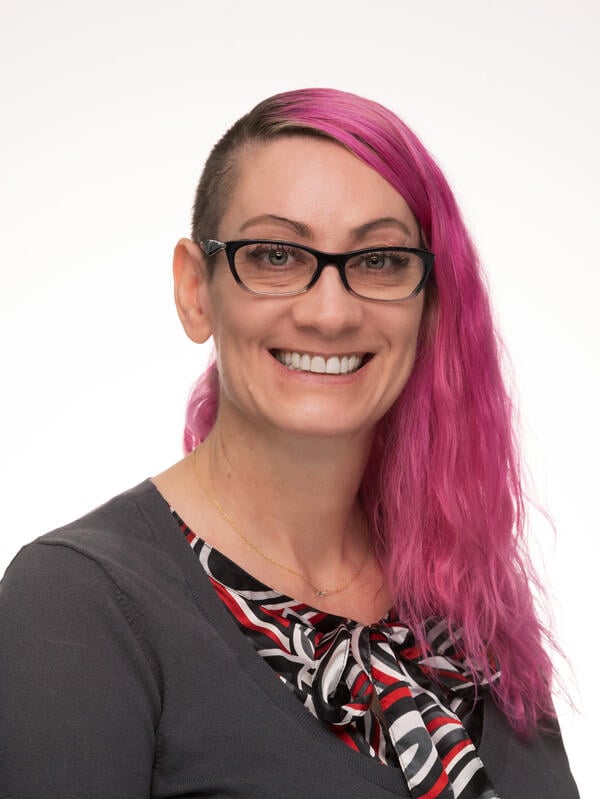You have /5 articles left.
Sign up for a free account or log in.
Errin Heyman is the associate vice president of learning experience at National University. I reached out to Errin to see if she would talk about her university and career and offer advice to anyone looking to move into a leadership role in higher education.

Q: In researching National University to prepare for our Q&A, I was surprised to learn about the large enrollment numbers for your private, nonprofit institution. What should all of us across higher education know about National University?
A: One of the great things to know is that National University was founded in 1971 by a veteran and we continue to have a deep commitment to meeting the unique needs of nontraditional learners—including working adults, military-affiliated students, caregivers and others balancing school with life’s many responsibilities.
NU has six schools and colleges offering more than 150 online and on-campus degree programs, including four- and eight-week course formats and individualized graduate models. NU has grown to serve more than 50,000 degree-seeking students and 80,000 workforce and professional development learners annually, with about 250,000 alumni.
NU is also home to the ANDers™—students who are parents and professionals, service members and scholars. Half of NU’s undergraduates are affiliated with the U.S. military, and we remain deeply committed to supporting veterans, active-duty service members and their families through dedicated services and community partnerships.
NU’s mission to support the whole student is embodied in our Whole Human Education™ model—an approach that goes beyond academics to invest in every aspect of the learner experience. The university has also recently launched “Nest” co-learning centers, built local childcare partnerships and reimagined our Veterans and Military Community Center to remove common barriers to college completion and workforce training.
We’re also very proud of the recently updated 2025 Carnegie Classifications, where NU was recognized as an Opportunity College in the “Higher Access, Higher Earnings” category, underscoring our national leadership in advancing social mobility, economic outcomes and inclusive educational access.
Q: OK, let’s talk about you and your role. What roles and responsibilities are within your portfolio? What was your educational and career path that brought you to your current role?
A: The team I am honored to lead is the learning experience team, comprising approximately 75 members in total. About half of the department are learning designers: They work closely with faculty to design, develop and revise/uplift courses. We also manage the learning management system and multiple integrations. We also have support for instructors who request “hotfixes” and just-in-time how-tos for instructing in the online courses.
We are a part of the Office of the Provost and work closely with pretty much every department at NU, including our Workforce and Community Education division.
My original intent, when I first started college in the early ’90s, was not to end up in this role that I have, that’s for sure! Of course, this role, in many ways, didn’t exist then. I was an English instructor at the University of Colorado (I have a B.A. in English writing, an M.A. in teaching of writing and an Ed.D. in higher education administration, with a focus on curriculum and instruction). That was my original intent: I wanted to teach writing. I was asked (well, pulled into, kicking and screaming, more like!) to move to teaching online in the mid-’90s. That one course literally changed the whole trajectory of my career! Over the years, I have had a fair amount of different kinds of roles and I’ve learned from each one and none of them were ones that I thought to myself, I want to be this, or do that …
I think you have to be open to constantly be learning—and have a little bit of faith that you’ll end up where you’re supposed to be. That may sound hokey and I get it, but pay attention to your passion and purpose more than a title or exact job description. Grow (and learn from) your networks and never discount a person based on title. You never know where they’ll end up!
Q: What advice do you have for midcareer professionals interested in moving into a leadership role at the intersection of education, technology and learner success?
A: I noted this a bit in the previous question … but be open to possibilities and opportunities.
The intersection—as you say, appropriately—of education, technology and learner success is a great place to be in. If you are passionate about learners and how to help them be successful, you need to look at multiple intersections and how those cross and intertwine. With all of the technology, models and approaches available to educators now, we have so many opportunities to meet more learners where they are than ever before and to help them be successful! Hone up on all of those skills.
I would also add, read up on current education/learning science research and neuroscience. How the brain learns (and what inhibits learning) is hugely informative for how we create learning opportunities, wrapped with the right support mechanisms (inside and outside of classes) for learners.
In terms of leadership, find a mentor or multiple mentors. I wouldn’t be here without several leaders who took the time to help me shape my own leadership skills and abilities. Finally, be willing to embrace budgeting and finances. This is not my first love, I admit, but for strategy and operations, it’s key.




